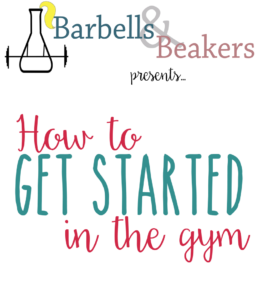Do you need BCAAs?
BCAAs are a popular supplement currently used for everything from weight loss to muscle soreness and muscle growth. Let’s explore what they are, how they’re used and if they’re needed.
WHAT ARE BCAAs?
BCAA stands for “branched chain amino acid,” which are building blocks of proteins. A chain of amino acids make up a protein. There are two categories (some argue three), which include essential and non-essential amino acids. ESSENTIAL amino acids are not naturally produced by your body and you must supplement them externally. Foods that have all 9 essential amino acids are called “complete” proteins. Complete proteins are usually animal proteins – everything from milk to meat and cheese. Non-animal product complete proteins include quinoa, hempseed, chia, soy, spinach and a few others. Protein sources that don’t have all 9 essential amino acids are called incomplete proteins. NON-ESSENTIAL amino acids are produced naturally by your body and don’t often need supplementation.
WHY DO PEOPLE USE THEM?
There are many claims about what BCAAs do – let’s investigate them.
- INCREASED MUSCLE PROTEIN SYTHESIS: Mostly, yes! See below
- HELP WITH MUSCLE SORENESS: no evidence to support this
- HELPS CARDIOVASCULAR PERFORMANCE: no evidence to support this
- HELPS WITH WEIGHT LOSS: no evidence to support this
- DECREASES FATIGUE (MENTAL) DURING EXERCISE: Slightly lower when supplemented >10g during exercise
- DECREASES FATIGUE (PHYSICAL) DURING EXERCISE: People claim they increase the time to exhaustion in prolonged endurance exercise – but this has only been shown in lightly trained or untrained athletes.
- INCREASES FAT OXIDATION IN PROLONGED EXERCISE: Some studies show this, but it’s unsure if this is due to glycogen preservation or not
- Further studies show no effect on cortisol or insulin levels, as well as epinephrine, etc.
MUSCLE PROTEIN SYNTHESIS:
While many of the original claims of the usefulness of BCAAs have been debunked over the last few years, one claim that sticks around is its effect on muscle protein synthesis (MPS). This is the idea that supplementing with BCAAs will increase muscle growth and even be muscle sparing during weight loss.
These claims come from studies around leucine, one of the essential amino acids. This amino acid alone was shown to increase MPS due to its effects on mTOR (mammalian target or rapamycin). Various studies explored how supplementing leucine could be used. When leucine was supplemented alone the results weren’t significant, but when paired with a protein source MPS was higher. This is most likely because it interacts with isoleucine and valine to create the best stimulus. Further studies show that if you add leucine to your post workout protein and carb source you’ll have more MPS than with just protein or just carbs. It also reduced protein breakdown.
HOW MUCH LEUCINE?
Most of these studies advocate for supplementing 2.5 g of leucine per meal, for a total of 8-10g of leucine a day.
HOW MUCH LEUCINE IS IN FOOD VS BCAAS?
- A scoop of whey protein: 2.5 g of leucine
- 142g of chicken: 2.5 g leucine
- 142g of round beef: 2.5 g leucine
- 4.6 whole large eggs: 2.5g of leucine
- BCAAs: ~2.5g/serving
IS IT SAFE?
TUI (tolerable upper intake) is 500mg/kg, as it can increase ammonia levels.
WHAT’S THE TAKE AWAY MESSAGE?
- BCAAs are made up of the building blocks of protein, the most important of these for muscle stimulus is leucine
- When pairing leucine with protein (and, more specifically, the amino acids valine and isoleucine) you have a higher muscle protein synthesis than just carbs or just protein
- Complete sources of protein are also high in leucine and can be supplemented if BCAAs are cost prohibitive
- Vegans/vegetarians/those who dislike animal protein would benefit from supplementing BCAAs to ensure they get all their essential amino acids
- BCAAs do not decrease muscle soreness, help with weight loss, or effect insulin
REFERENCES:
- Blomstrand E, Hassmén P, Newsholme EA Effect of branched-chain amino acid supplementation on mental performance . Acta Physiol Scand. (1991)
- Consuming a supplement containing branched-chain amino acids during a resistance-training program increases lean mass, muscle strength and fat loss
- Elango R, et al Determination of the tolerable upper intake level of leucine in acute dietary studies in young men . Am J Clin Nutr. (2012)
- Liu Z, et al Branched chain amino acids activate messenger ribonucleic acid translation regulatory proteins in human skeletal muscle, and glucocorticoids blunt this action . J Clin Endocrinol Metab. (2001)
- Lynch CJ, et al Regulation of amino acid-sensitive TOR signaling by leucine analogues in adipocytes . J Cell Biochem. (2000)
- Shimomura Y, et al Effects of squat exercise and branched-chain amino acid supplementation on plasma free amino acid concentrations in young women . J Nutr Sci Vitaminol (Tokyo). (2009)
- Shimomura Y, et al Branched-chain amino acid supplementation before squat exercise and delayed-onset muscle soreness . Int J Sport Nutr Exerc Metab. (2010)
- van Hall G, et al Ingestion of branched-chain amino acids and tryptophan during sustained exercise in man: failure to affect performance . J Physiol. (1995)
